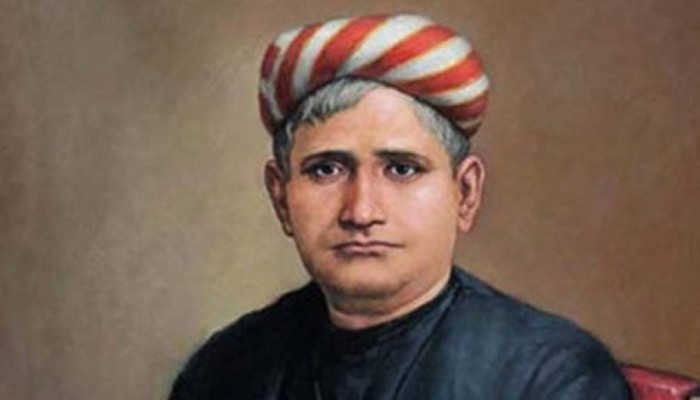Understanding Rishi Bankim Chandra and Indian Nationalism
- In History & Culture
- 11:33 AM, Jun 30, 2020
- Ranabir Bhattacharyya
Bankim Chandra Chattopadhyay, a great literary stalwart in the nineteenth century Bengal was a true pioneer of nationalism in India. His prose writings in the forms of novels, articles and essays paved the path of Hindu intellectual revival. Many historians have debated whether nationalism existed in India before Rishi Bankim Chandra, especially before Bengal Renaissance. Bankim Chandra not only gave India ‘Vande Mataram’, the national song but also heralded a new era for Bengali literature. Of late, the nation celebrated this great litterateur’s 182nd birth anniversary. All these years, the works of Bankim Chandra have been analysed by litterateurs, historians and political critics. No doubt, he realised and raised nationalism to the level of religion and he identified the Motherland with the Mother Goddess.
Bankim Chandra Chattopadhyay, born in Bengal in 1838, was an icon in the true sense of the term. He was one of the first graduates from the University of Calcutta. In fact, at the age of 20, he became a Deputy Magistrate and Deputy Collector under the British Raj. His understanding of the British system made him realise the clutches of colonial rule and British dominance in various facets of Indian life. Many people have forgotten that his debut novel 'Rajmohan's Wife' is the first Indian novel to be written in English. In 1865, Bankim Chandra penned the first Bengali novel 'Durgeshnandini'. The literary works of Bankim Chandra are still revered as gems in World literature but he played a bigger role in introducing Indian nationalism, for the first time in undivided India.
English education, Utilitarianism & French revolution
The need for English education and the urgency to do so has always been a debate in India, including West Bengal. In fact, during the Left Front rule in West Bengal in independent India, English was gradually done with in the primary stage of education. But Bankim Chandra, the father of Indian nationalism, got the exposure of English education. In such an academic atmosphere, Bankim Chandra studied utilitarianism and the ideologies of the French revolution. The scientific thoughts of the West played an integral role in shaping up Bankim Chandra's modern political thought which in turn gave an Indian shape to indigenous nationalism. Let's not forget that there are differences between the European concept of nationalism and what we understand by Indian nationalism. Bankim Chandra realised the need to opine an 'inclusive' framework to make Indian nationalism a path for all. The revolutionary ideas of 'Anandamath' underline Bankim Chandra's idea of Indian patriotism and a blueprint for Indian revolutionaries in the freedom movement against the British Raj.
Hindu nationalism and Indian nationalism
In the post-independence phase, there have been debates around whether Bankim Chandra's Indian nationalism is Hindu nationalism or not. The reality is, Bankim Chandra realised the ethos of Indian Nationalism through the Hindu trajectory and it has no conflict with the Indian pluralism. Indian National Congress, the political outfit which has time and again claimed Indian national struggle to be a Congress Party activity, has tried million times to portray Nehruvian Nationalism as Indian Nationalism. In reality, Bankim Chandra's nationalism is great Indian nationalism with an inclusive mind-set. There is no politics of anxiety with this approach. Limiting Bankim Chandra as a mere religious or cultural revivalist will be a gross mistake; for he was the creator of a new political and religious norm that was the product of the demands of social and cultural currents of his time. Rishi Aurobindo rightly said, "Bankim Chandra Chattopadhyay created a language, literature and a nation".
Bankim Chandra Chattopadhyay was instrumental in sowing the seeds of Bharat and his literary works paved the path for true Nation building. There is no real conflict between Rabindranath Tagore's 'Jana-Gana-Mana' and Bankim Chandra's 'Vande Mataram'. Time has come to understand Bankim Chandra's Indian Nationals and not to discriminate the Hindu ethos it has. What Bankim categorically affirmed two centuries back on nationalism, independence and political liberty, is still relevant in the neo-normal world.
Image provided by the author.
Disclaimer: The opinions expressed within this article are the personal opinions of the author. MyIndMakers is not responsible for the accuracy, completeness, suitability, or validity of any information on this article. All information is provided on an as-is basis. The information, facts or opinions appearing in the article do not reflect the views of MyindMakers and it does not assume any responsibility or liability for the same.







Comments